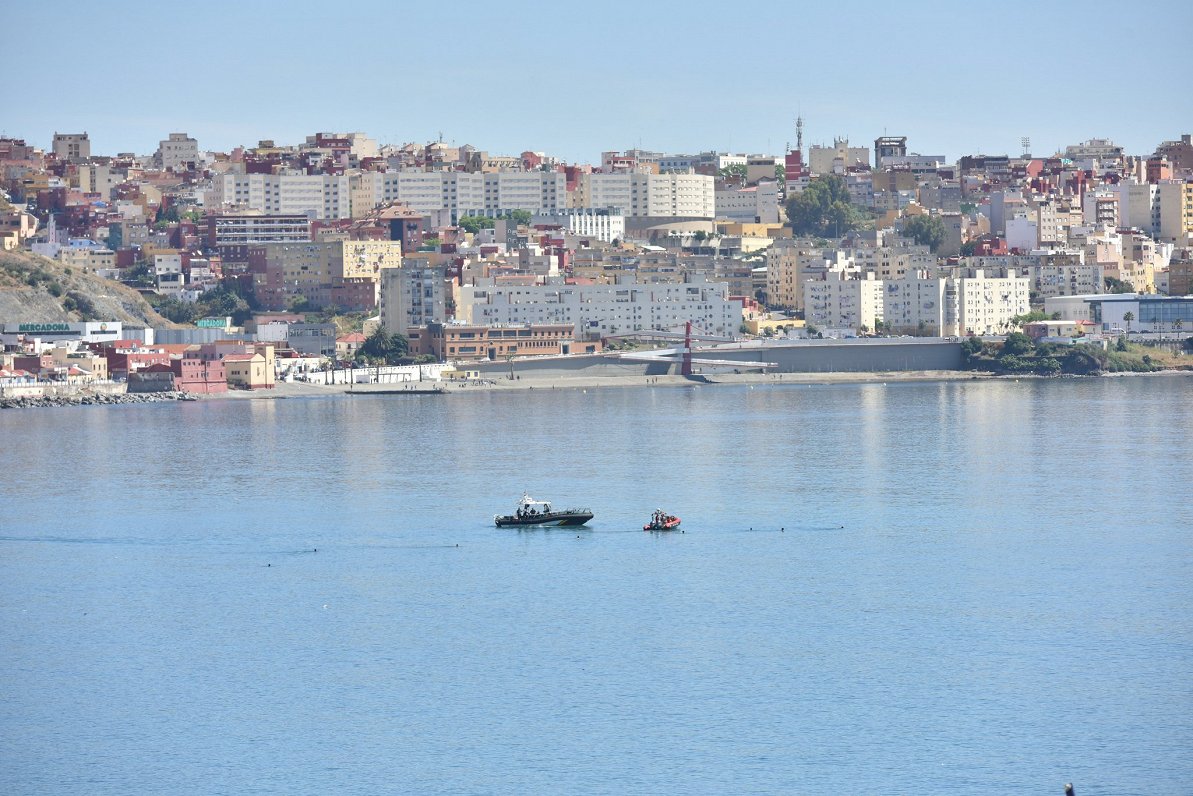For many, the decision of the European Union (EU) member states to gradually ease travel restrictions for vaccinated citizens came as a great relief this week. This means that the tourism industry, the aviation industry and other areas will be able to breathe a sigh of relief. But it just seems that the various forms of movement have always proved to be such a small stumbling block for Europe.
And that’s why the TOP 3 of this week’s events is about the already mentioned travel, about the disputes caused by travel with Great Britain, as well as the escalation of the migration issue on the other side of the Mediterranean.
TOP3 of European events: Covid-19 certificate, disagreements with the British and the migration crisisUģis Lībietis00:00 / 00:00
—
Agreement on Covid-19 certificate
“The Council has recommended that Member States ease some of the restrictions, especially for people who have received the vaccine. the spread of coronavirus strains in the European Union, The European Council agreed on a new emergency braking mechanism that would allow Member States to act quickly and in a coordinated manner, “said Christian Vigand, a spokesman for the European Commission.
Until now, one of the biggest obstacles to lifting or easing travel restrictions has been the issue of the so-called green travel certificate, or Covid-19 certificate, which would certify that a person has been vaccinated. Only on the evening of Thursday, 20 May, the European Parliament and the Member States reached an agreement for the establishment of such a certificate, preferably in early summer. Such a digital certificate will allow each citizen to obtain a document confirming their vaccination status, showing a negative Covid-19 test, or proving that a person has Covid-19 illness.
Initially, there was a serious disagreement between the European Council and Parliament as to whether or not such a document should serve as an exemption from quarantine or provide free tests. It just looks like the European Parliament has had to make a little more concessions this time around.
EU-UK relations are intensifying again
EU-UK relations have once again intensified this week, with more and more Britons going on holiday trips to the south of Europe. Following reports of relatively intolerant treatment of EU citizens at the UK border, there were concerns that similar treatment or even retaliation could be seen in southern resorts. This seemingly insignificant friction also highlighted the differences between the two sides over the post-Brexite settlement in Northern Ireland. If, until relatively recently, the EU threatened to suspend this Northern Ireland protocol unilaterally, it is now being talked about in London.
“There are some bitter moments in our discussions and these talks are not very productive. We have to see how far we will go with them.
The biggest problem is that if the way in which this protocol is currently working threatens the Good Friday Peace Treaty rather than supporting it, then we have a serious problem. That was not the purpose of the Northern Ireland Protocol. If that happens, however, this document is not working properly and we need to start talking to the European Union about resolving these difficulties. I hope we can do that in about a month, “said Bruce Secretary of State David Frost this week.
He pointed out that the problems in Northern Ireland would not have been even more acute if the issue had not been fueled by the EU itself, with the sole introduction of controls on vaccine exports and their subsequent abolition. As Frost pointed out, it was this January 29 march that completely changed the tone of the talks between the two parties.
Migration crisis in the Mediterranean
The week also brought very worrying news from the Spanish-owned enclave of Ceuta, which attracted some 8,000 migrants in a matter of days. It all actually happened with the news from the Moroccan police and border guards.
“The question is not whether people wanted to cross the border. The question is – where was the Moroccan police, who usually prevent migrants from crossing the border.
This is due to tensions between the Spanish and Moroccan governments. This migration card is being used as blackmail to put pressure on a Member State of the European Union, in this case Spain. This is because Spain is dependent on the Moroccan government to prevent irregular border crossings, just as Greece is dependent on Turkey to prevent the flow of refugees through the country, “said Blanc Garcez, a researcher at the Barcelona Institute of International Affairs.
She pointed out that the migration card was once again being used to put pressure on European countries, which are also generously paying Morocco to control the flow of refugees.
Margaritis Shins, Vice-President of the European Commission (EC), has said that this is not the first time in recent months that a third country has tried to intimidate the EU. However, the bloc’s answer is very clear: no one in the EU will be able to blackmail. The EC itself was reluctant to explain which countries might have blackmailed Brussels at the time, but observers admitted that it was most likely Turkey.
–
Highlight text and press Ctrl+Enterto send the text to be edited!
Highlight text and press Report a bug buttons to send the text to be edited!
–
–


